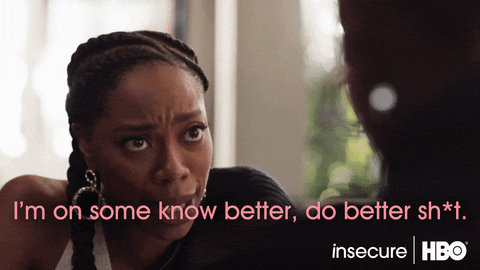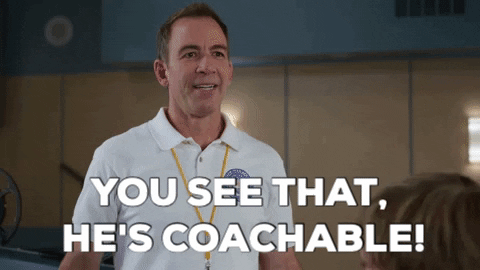25 April 2023 | Sales
What you’re getting wrong in interviews
By Gabrielle "GB" Blackwell

Picture this, a green, but eager candidate enters the interview process. There are things you know this candidate will need to improve to do the role really well but their eagerness gives you confidence that they’ll quickly bridge those development gaps
But doubts start to emerge once they actually start the role.
Despite your best coaching efforts, they’re not developing at the pace you’d need. And their eagerness has warped into hubris or indifference.
What went wrong?
Mistaking eagerness for coachability.
Remember this, if you are taking a bet on a candidate knowing that they’ll need significant coaching to be successful but you haven’t done the work to see if they’re coachable, you’re signing yourself up for some major “oh f*ck” moments.
These “oh, f*ck” moments show up as your rep:
- Performs poorly but doesn’t ask for help
- Struggles to implement feedback
- Gets defensive, if not confrontational, when given redirective feedback
- Is quick to blame others for their lack of performance
- Expresses reluctance to exceed activity expectations
To avoid those “of f*ck” manager moments, you’ll absolutely, positively, most definitely need to assess for coachability as a competency during your interview process.

To assess coachability, you’ll need to identify:
- How coachability shows up in behaviors
- Which interview steps to take and format to use
- What “good” looks like when assessing coachability in interviews
How coachability shows up

We know what we don’t want to see from the reps we hire — doesn’t ask for help, struggles implementing feedback, becomes defensive, blaming — so let’s start identifying the behaviors we do want to see:
- Proactive in asking for help and resources
- Seeks out and can quickly implement feedback
- Receptive and accepting of redirective and corrective feedback
- Takes 100% accountability for their performance
- Willing to go above and beyond minimum expectations
Now that we’ve come up with our list of behaviors, the next step we’ll take is identifying where in our interview process it makes sense to assess the candidate on coachability.
Interview steps and format

I’d highly recommend using one question and answer interview and one scenario interview.
Part 1: Question and answer
The question and answer interview will help you uncover if coachability is a characteristic of the candidate. Some of the interview prompts you can use:
- Tell me about a time where you were falling behind on a goal and needed to ask for help to improve your performance. How long were you falling behind before you asked for help?
- What was the feedback you received and how did you go about implementing it? What were the results?
- It’s always possible the company will make changes that may adversely impact how you generate success (i.e. territory changes, compensation changes, etc.). Tell me about a time a change was made that had a significant impact on your ability to be successful. How did you approach the change? What helped you find success?
- What are some of the ways you support your own learning, growth and
development as a sales person? What inspired you to go beyond what your employer provides? How has it helped you in your work?
Assist: Similar to the framework I introduced for identifying rep motivations, you’ll want the candidate to provide at least three examples that illustrate how coachable they are. This helps in weeding out the candidates who are simply great at interviewing so you can focus solely on the candidates who are great for the role.
Part 2: Scenario interview
What better way to assess how coachable someone is than to simulate a typical coaching scenario during the interview process?
This is where a scenario interview comes in.
Whether it’s a:
- Mock discovery or cold call
- Live prospecting assignment
- Shadowing session to see how they research
…you’ll get a first hand witness of what coaching this person will look, sound and feel like if you include this step in your interview process.
All you’ll need to do is:
- Set really clear expectations for the scenario simulation – how would both you and the candidate know what went well and what could use improvement?
- Once scenario exercise is complete, have the candidate provide a self assessment before you provide feedback.
- Run through the scenario a second time, keeping an eye and ear out on how well the candidate implemented your feedback.
What “good” looks like

Now that we outlined the interview process, the last piece of the puzzle is having some kind of system to appropriately judge candidates’ coachability.
During the question and answer interview, the most important things to listen for are multiple examples of times where the candidate demonstrated the ideal coachability behaviors. You’ll of course want to listen out for how those behaviors led to improved performance.
In the scenario interview, you’ll want to listen and look out for how candidates respond and react when in a position to provide and receive feedback. For example, if the candidate shows an ability to effectively self assess and demonstrates behavior that shows they’re receptive to feedback, this is a huge green flag. This shows up as:
- Taking written notes
- Asking clarifying questions
- Showing appreciation for feedback and coaching
Going into the second round of the scenario, you’ll want to observe how quickly and effectively your candidate is able to implement feedback.
If the candidate does not apply the feedback at all, hasta la never…move on!
If the candidate does apply the feedback effectively, they get a thumbs up!
If someone falls somewhere in the middle — attempting to apply the feedback but unable to do so effectively — consider revisiting how they did in the questions and answers interview.
- If there were red flags during that interview, it’s likely better to pass on the candidate.
- If you felt confident in their coachability interview, there may not be as much risk in moving this candidate forward.
Hiring for coachability helps you hire confidently
I don’t know of any sure fire ways to avoid misfiring 100% of the time, but I do know the most successful reps I’ve ever managed are the ones who rank high in coachability.
If you run this coachability-centered interview process effectively, you’ll feel confident that the reps you’re bringing on board are the ones with the greatest ability to perform, if not outperform.